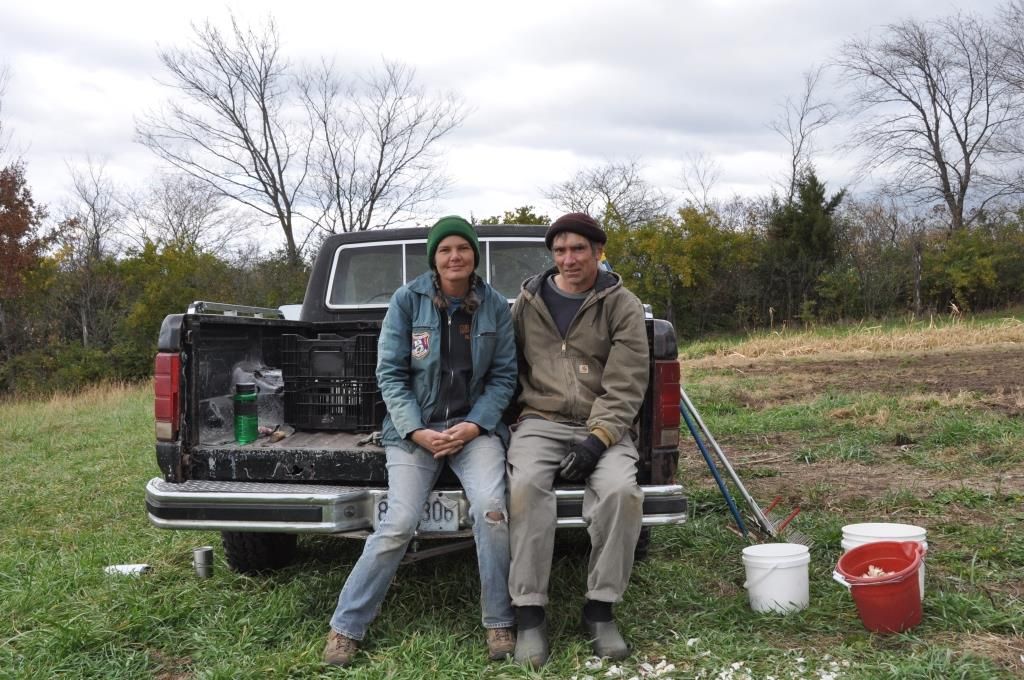Interested in starting your own entrepreneurial journey in food and beverage but unsure what to expect? Then read up on our interview with Thomas Ruggieri, co-owner of Fair Share Farm, located in Kearney, MO, USA.
What's your business, and who are your customers?
We are a regenerative farmstead that raises vegetables and craft live-culture ferments. Our customers are local to the KC area. We sell at the Brookside Farmers Market on Saturdays, are in locally and regionally-owned retail locations, and also sell to restaurants.
Our business is uncommon (farmstead fermented vegetables) but not unlike a winery or dairy. We raise an agricultural product and ferment it on-farm. Our ferments’ flavor and nutrition come from 20 years of soil building.
Most of our ferments are based on traditional recipes (Kimchi, Curtido, Jalapeno en Escabeche). As such, we cannot take credit for the art of the ferment but rather the craft. We focus on the ingredients deciding which varieties of vegetables to grow, working on building healthy soil, maintaining our kitchen in accordance with our HACCP Plan, and selectively sourcing the few off-farm items we purchase.

Tell us about yourself
We are farming on land Rebecca’s family has owned for four generations. She came back to the land to preserve farmland and create community. We met on a community farm in Upstate New York. As a former environmental engineer, I was looking for a more positive way to use my skills to preserve the environment.
I have always enjoyed cooking and have made fermented foods, whether it be wine, bread, vinegar, cured meats, or vegetables. We decided in 2014 to explore fermented vegetables as a value-added product. As we have focused our farming approach on building and improving the life in our soil, a live-culture preserved product seemed an appropriate extension of our work.
In addition, the preservation of vegetables by fermenting is conducted at room temperature. This method saves energy and allows us to operate a ‘kitchen without a stove.”
What's your biggest accomplishment as a business owner?
Over the last 20 years, we have increased the organic matter in our soil from 2.5% to over 4.5%. This increase shows that our farming operation sequesters carbon, helping to improve diversity in our land and take carbon dioxide out of the atmosphere. We are able to say that “carbon was sequestered making our product,” which is a rare thing.
The source of the life in our product is the life in our soil. The probiotics and prebiotics in our ferments are beneficial to the human microbiome. We feel that our health has improved since we started the business in earnest in 2016 when our on-farm certified kitchen was completed.
What's one of the hardest things that come with being a business owner?
Agriculture is an unpredictable business. This has been further complicated by the impact of climate change. We see more extreme weather events, especially heavy rainfall, which can significantly impact vegetable operations like ours.
In 2020 we restructured the layout of our farm, installing over 7,000 feet of berms and swales to better manage water on the farm. Along with this, we have been planting more perennial plants (chestnuts, persimmons, elderberries, etc.) to create an agricultural habitat closer to the natural condition in our area.
One of the hardest things for us is to articulate to the public is the value of regenerative agriculture. The many benefits of our agricultural farming methods, such as carbon sequestration, increasing biodiversity, managing land to eliminate erosion, and incorporating community into our business, are important as we move into the future. Sustainability is a goal of our farm that we are continually working towards.
What are the top tips you'd give to anyone looking to start, run and grow a business today?
- Focus your business on sustainability. The Environmental, Social, and Economic legs of the sustainability stool need to be balanced. Economics cannot be your sole priority.
- The people that work for you are what make your business what it is. The staff deserves credit, compensation, and recognition for the benefit they provide the business.
- Don’t forget your own health and well-being.
Is there anything else you'd like to share?
Feed the Soil, Feed the People!
Where can people find you and your business?
Website: http://fairsharefarm.com/
Facebook: https://www.facebook.com/FairShareFarm/
Instagram: https://www.instagram.com/fairsharefarm/
If you like what you've read here and have your own story as a solopreneur that you'd like to share, then email community@subkit.com; we'd love to feature your journey on these pages.
Feel inspired to start, run or grow your own subscription business? Check out subkit.com and learn how you can turn "one day" into day one.
